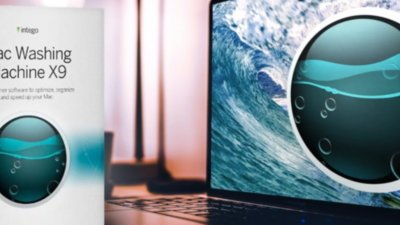On Intel: Xeon price cuts, lead-free chips, and new flash deal
Apple's exclusive CPU supplier has been busy prepping quad-core processor cost cuts, clearing lead from its next-generation architecture, and establishing a new flash partnership that could help future iPhones, iPods, and Macs.
Intel is about to launch an aggressive round of price-slashing for its Xeon workstation processors, sources inside the semiconductor industry claim. A late July price drop is said to be scheduled that would both match shipment targets and fight back against AMD's first quad-core Opteron chips, dubbed "Barcelona."
The move would primarily bring the quad-core Xeon 5300 processor line, nicknamed Clovertown by Intel, much closer in price to the dual-core processors on sale today. Prices will reportedly range from as little as $209 for a 1.6GHz Xeon E5310 to $744 for the official top-end processor, the 2.66GHz Xeon X5355.
The claimed move may help Apple's component prices, which currently uses only the special-run 3GHz Xeon X5365 out of the entire Clovertown lineup as a build-to-order selection for its Mac Pro tower.
Lead excised from future Intel tech
In addition to providing better performance for future generations of Macs, Intel's 45-nanometer Penryn CPUs will help Apple meet its goal of purging lead from its systems.
Starting with the new chips, Intel plans to replace the lead in chip "packages" — the soldered balls, bumps, or pins that join the actual processor to its socket on the mainboard — to an alloy that mixes copper, silver, and tin to achieve the same effect. The change will eliminate the last five percent of lead that used to exist in Intel's processors, or about 0.02 grams for every finished processor.
While Penryn will lead the charge in the second half of 2007, processors based on today's 65-nanometer technology will also go lead-free in 2008.
Intel forms new flash supplier
Intel will also be responsible for creating a new alternative to Samsung, Toshiba, and other heavyweights in the production of flash memory.
The company on Tuesday announced a deal with Europe's STMicroelectronics to form a new, independently-run flash manufacturer operating out of the Netherlands and Switzerland. A private equity group, Francisco Partners, would also inject the new business with $150 million in exchange for a stake in the project.
Still unnamed, the new firm will target its NAND and NOR flash chips at consumer electronics from other companies. This would include "cellular phones, MP3 players, digital cameras, computers and other high-tech equipment," Intel says. Intel's Turbo Memory technology for notebooks, previously known as Robson, depends on flash to speed up loading times.
Apple is heavily dependent on flash for some of its current devices, including the iPod nano and shuffle. The iPhone will also implement onboard flash.
 Katie Marsal
Katie Marsal










 William Gallagher
William Gallagher

 Malcolm Owen
Malcolm Owen
 Amber Neely
Amber Neely



 Sponsored Content
Sponsored Content







